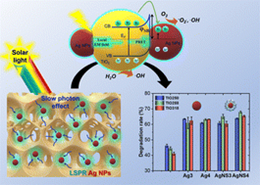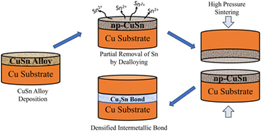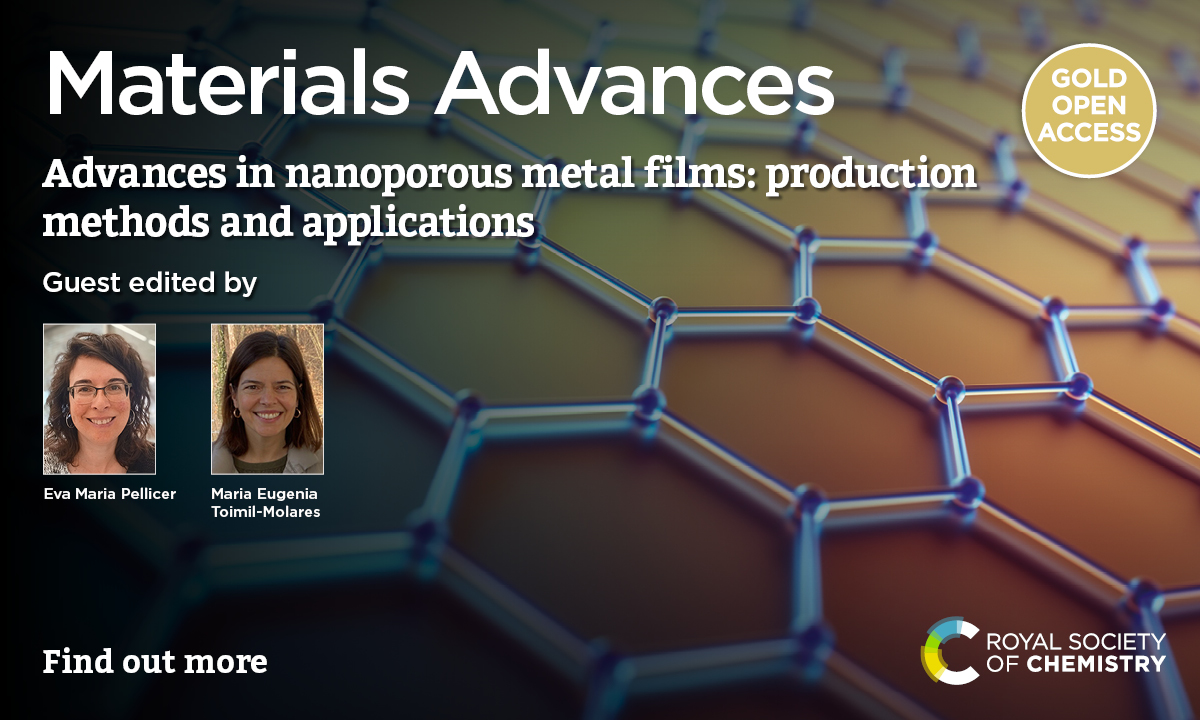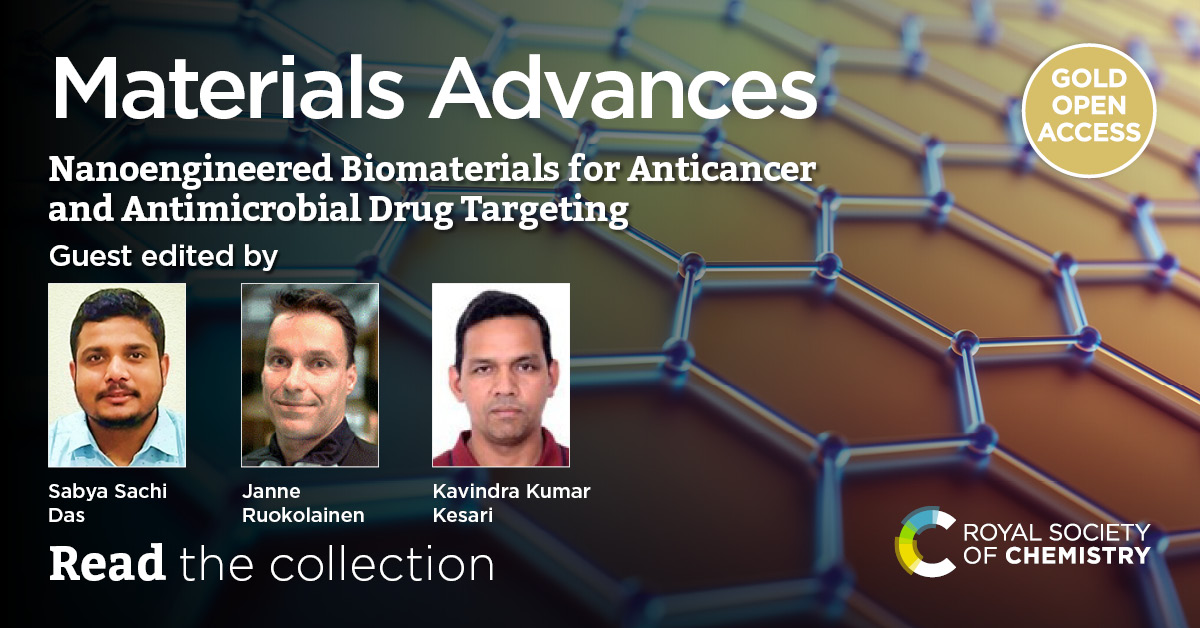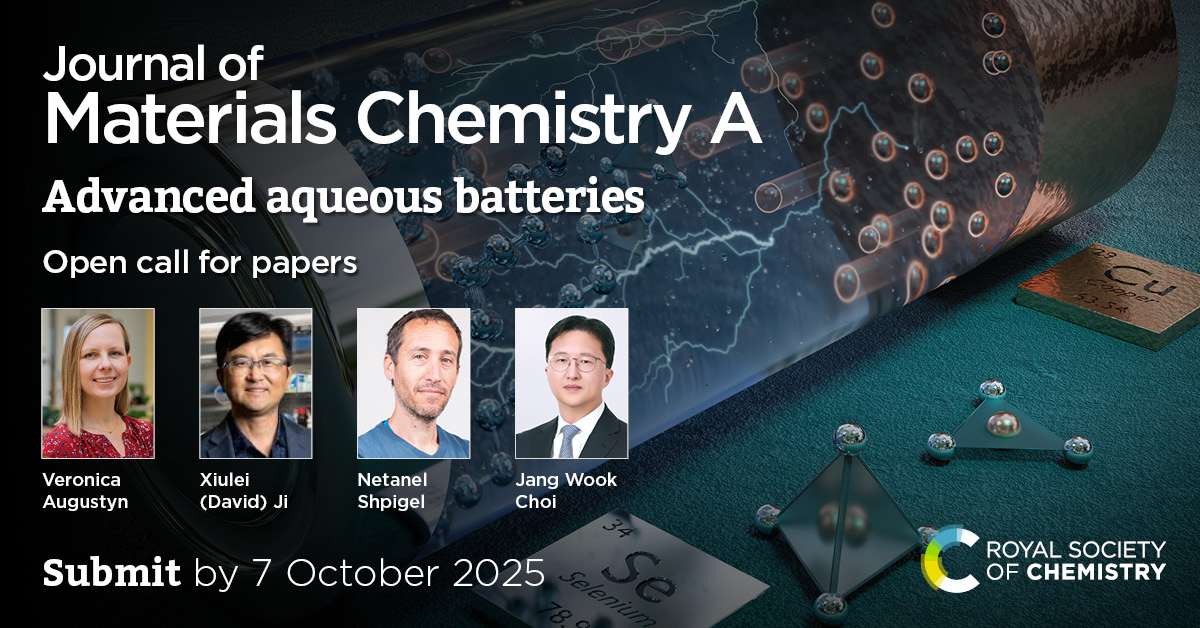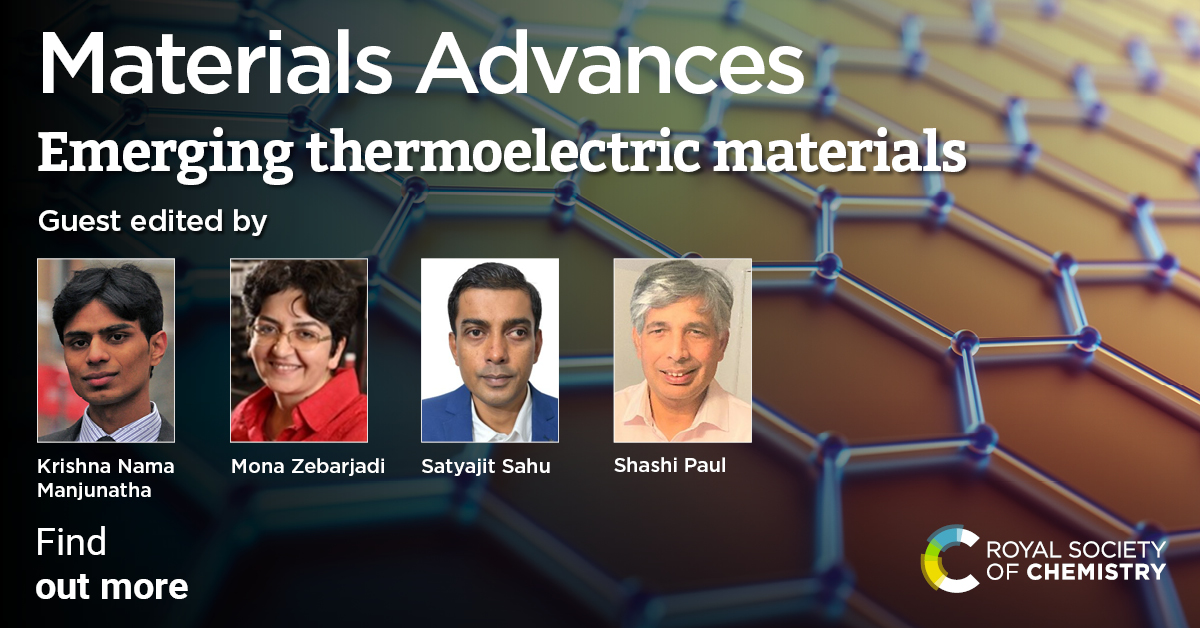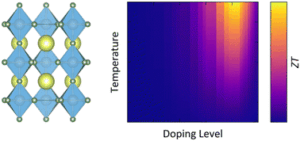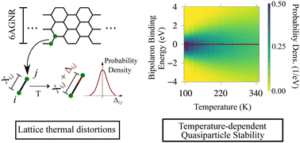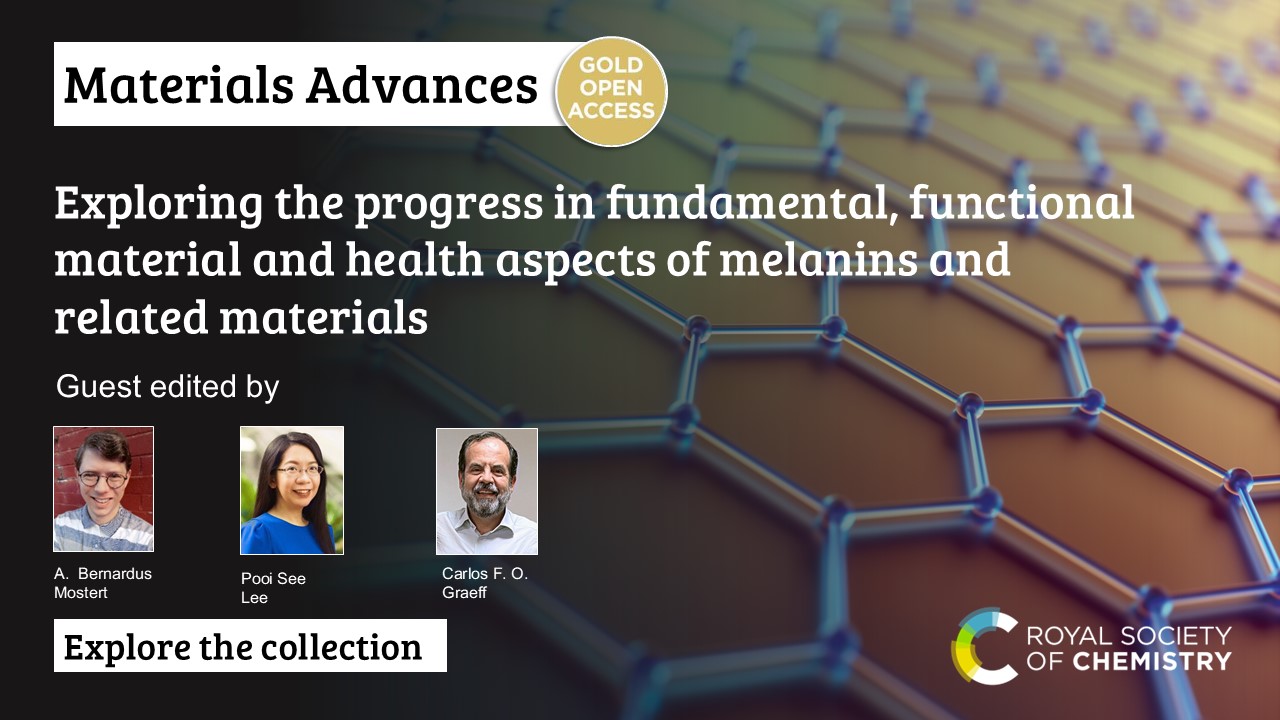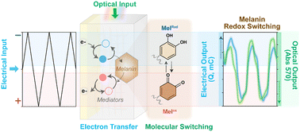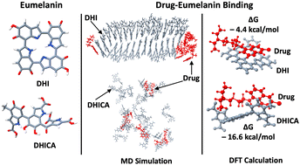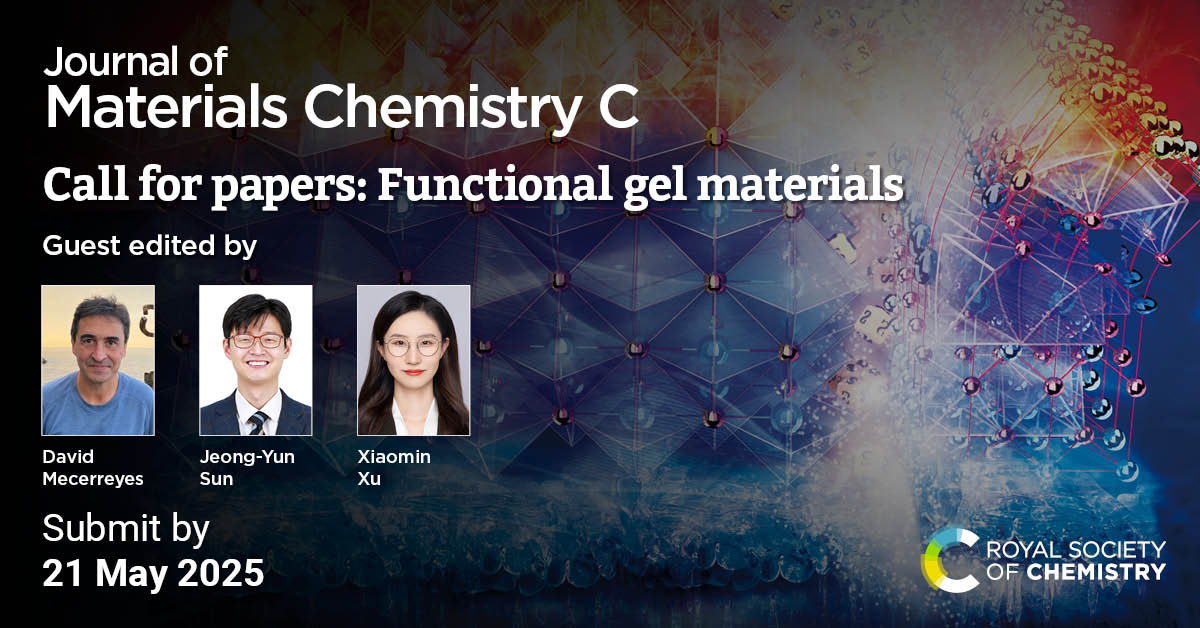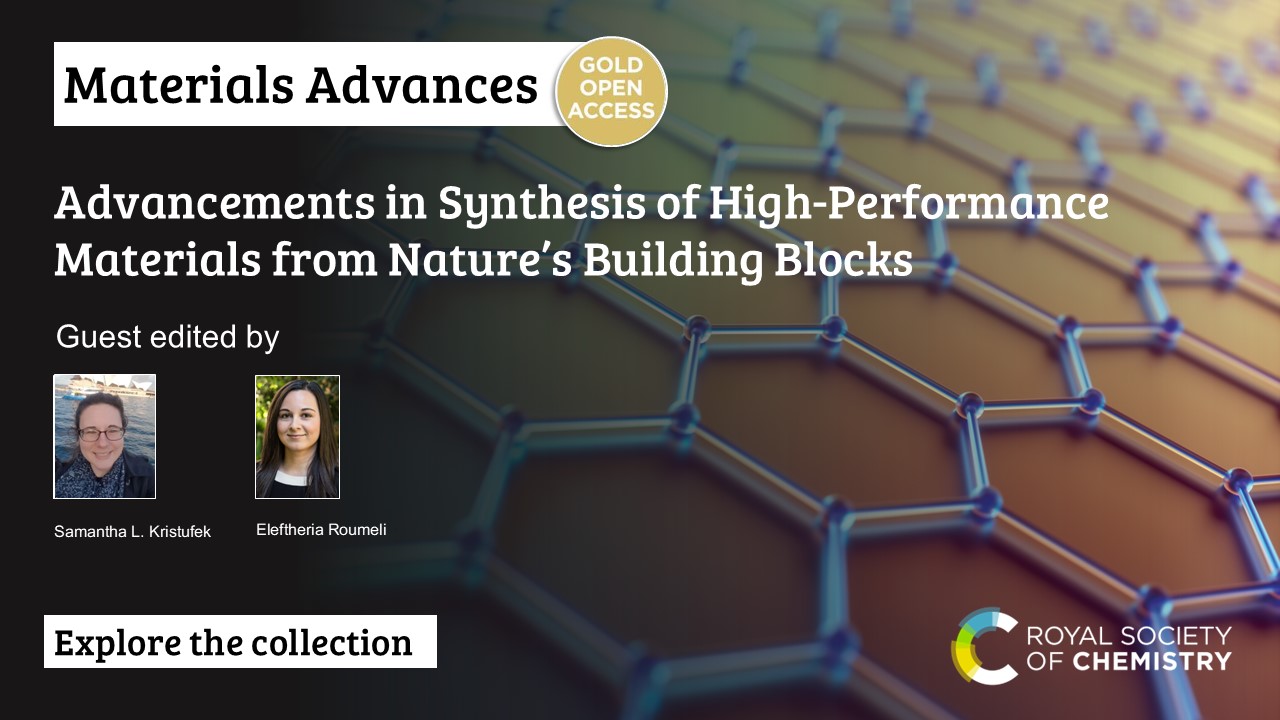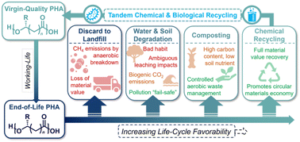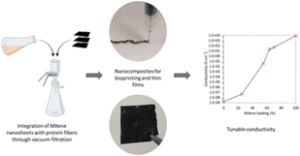Submit your research until 31 July 2025
We are delighted to announce this open call for papers to contribute to a themed collection for Journal of Materials Chemistry A on Emerging Inorganic Materials for Solar Harvesting in collaboration with ICMAT 2025 Symposium O in Singapore and guest edited by Lydia Helena Wong (Nanyang Technological University, Singapore), Robert Hoye (University of Oxford, UK), Yun Jeong Hwang (Seoul National University, South Korea), Yanwei Lum (National University of Singapore, Singapore) and Frank Osterloh (University of California, Davis, USA).
Scope
In this special themed collection of Journal of Materials Chemistry A, in collaboration with ICMAT 2025 Symposium O in Singapore, we invite submissions of recent emerging inorganic materials for solar energy harvesting devices such as solar cells, solar assisted water splitting and electrochemical CO2 reduction. Examples include but are not limited to: metal oxides (BiVO4, Fe2O3, FeZrO2, CuBiO, ZnFe2O4, etc, and their derivatives), sulfides (Sb2S3, Sb2Se3, CuSbS, Se, etc and their derivatives), novel kesterite (CuZnSnS4 and its novel compounds), metal nitrides (ZnSnN2, metal oxynitrides (TiON, ZrON, TaON and their derivatives) and other novel materials.
- Synthesis, characterizations of emerging inorganic photoabsorbers, charge transporting layers, transparent conductors
- Theoretical prediction of novel inorganic materials for solar harvesting.
- Nanostructuring strategies for novel inorganic materials
- New device structures for photovoltaics, solar water splitting, photocatalysis, photoelectrochemistry, CO2 reduction and etc.
- Novel electrocatalyst design, synthesis, and characterization for solar water splitting, photocatalysis, CO2 reduction and etc.
- High throughput techniques, machine-learning assisted discovery of new materials and etc.
- Novel approaches for enhancing light absorption using inorganic materials such as up/down conversion, solar concentrator and etc.
- High efficiency solar cells, solar water splitting devices, and photocatalysts
Guest Editors

Lydia Helena Wong (Nanyang Technological University, Singapore)
Lydia Wong is a Professor of Materials Science and Engineering at Nanyang Technological University, Singapore. Her research interest is in the structural and chemical modification of semiconductor materials for clean energy and electronic applications, particularly for conversion of solar energy to electricity and fuel. She has published more than 160 publications in international peer reviewed journals and cited more than 10,000 times. A Fellow of the Royal Society of Chemistry, she serves on editorial boards for leading journals in energy and materials chemistry, including Journal of Materials Chemistry A.

Robert Hoye (University of Oxford, UK)
Robert Hoye is an Associate Professor of Inorganic Chemistry at the University of Oxford. Prof. Hoye obtained his PhD from the University of Cambridge in 2014, followed by a postdoc at MIT (2015-2016), and two College research fellowships in Cambridge (2016 – 2020). In 2020, he moved to Imperial College London as a Lecturer, then Senior Lecturer (Aug. 2022 -). In Oct. 2022, he moved to Oxford as Associate Professor. Prof. Hoye’s group focuses on developing inorganic semiconductors for energy applications, particularly focussing on lead-free perovskite-inspired materials.

Yun Jeong Hwang (Seoul National University, South Korea)
Yun Jeong Hwang has been an Associate Professor in the Department of Chemistry, at Seoul National University since 2021. Her major research topics are electrochemical catalytic reactions for carbon/nitrogen/oxygen utilization such as CO2, H2O, N-containing small molecules, Lithium mediated nitrogen reduction reaction, and biomass derivatives upgrading. It also covers in-situ/operando electrochemical Raman and IR analysis to understand the reaction pathways and the catalyst surface. She received a Bachelor’s degree and a Master’s degree from the Chemistry Department of Korea Advanced Institute of Science and Technology (KAIST). She continued her graduate study at the University of California, Berkeley studying charge separation within semiconductor nanowire arrays for photoelectrochemical water splitting. She started her independent research career in the Clean Energy Research Center at the Korea Institute of Science and Technology (KIST) before she transferred to Seoul National University. She was one of the pioneer members who initiated the e-chemical (electrochemical CO2 conversion) project at KIST. She has served as an Associate Editor of the Journal of Materials Chemistry A and Materials Advances, the Royal Society of Chemistry since 2019. She is a recipient of the 2020 Top 10 Technology Award in Climate Change Response by the Korean Government Ministerial Commendation and the 2020 Top 100 National R&D Award (Project Investigator Yun Jeong Hwang), by the Korean Government. She was selected as a Young Korean Academy of Science and Technology (Y-KAST) member in 2022 and Women Scientists at the Forefront of Energy Research by ACS Energy Letters in 2023.

Yanwei Lum (National University of Singapore, Singapore)
Yanwei Lum obtained his BEng degree in Materials Science and Engineering at Imperial College London in 2012. He then received his PhD degree in Materials Science and Engineering at the University of California, Berkeley in 2018 under Prof. Joel W. Ager III. This was followed by a PostDoctoral stint at the University of Toronto with Prof. Edward H. Sargent. He joined the Department of Chemical and Biomolecular Engineering at the National University of Singapore as an Assistant Professor in 2021. His research interests include electrocatalysis, CO2 conversion, electroorganic reactions and hydrogen storage. He has a H-index of 37 and his publications have been cited >9000 times. In his independent career, he has published in top international journals such as Nat. Chem., Nat. Commun., Sci. Adv. and J. Mater. Chem. A as the corresponding author.

Frank Osterloh (University of California, Davis, USA)
Frank Osterloh is a professor of Chemistry at the University of California at Davis, in the United States. His research interests are centered on the chemical and photophysical properties of inorganic materials and their use for solar energy conversion. This includes the development of photocatalysts for overall water splitting (artificial photosynthesis), inorganic photovoltaic cells, and the study of photochemical charge transfer reactions with surface photovoltage spectroscopy.
Submit to Journal of Materials Chemistry A
Please consider contributing to this open call for papers for our upcoming themed collection on Emerging Inorganic Materials for Solar Harvesting to be published in Journal of Materials Chemistry A.
Submissions to the journal should contain chemistry in a materials context and should fit within the scope of Journal of Materials Chemistry A. Please see the journal’s website for more information on the journal’s scope, standards, article types and author guidelines.
This call for papers is open for the following article types:
- Communications
- Full papers
Open for Submissions until 31 July 2025
If you would like to contribute to this themed collection, you can submit your article directly to the online submission service for Journal of Materials Chemistry A. Please mention that this submission is a contribution to the Emerging Inorganic Materials for Solar Harvesting collection in the “Themed issues” section of the submission form and add a “Note to the Editor” that this is from the Open Call. The Editorial Office reserves the right to check suitability of submissions in relation to the scope of both the journal and the collection, and inclusion of accepted articles in the final themed issue is not guaranteed.
Please also note that all submissions will be subject to initial assessment and rigorous peer review to meet the usual high standards of Journal of Materials Chemistry A.
